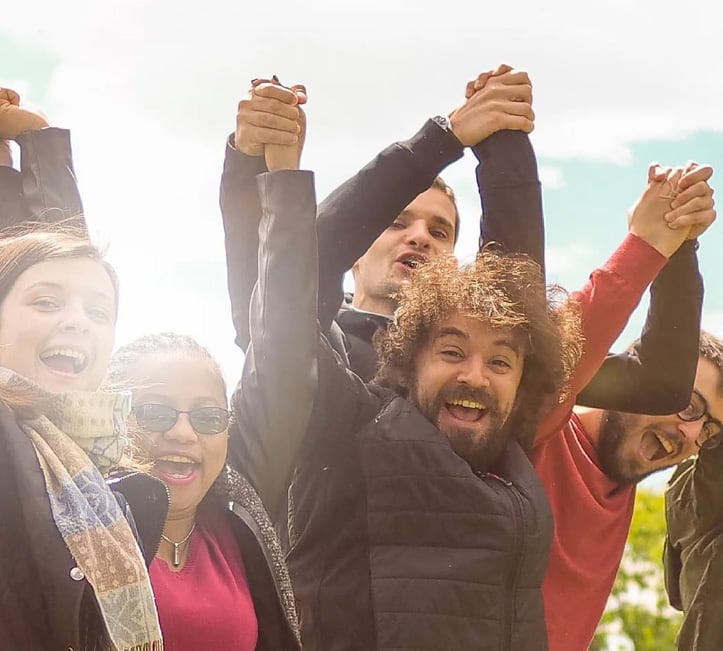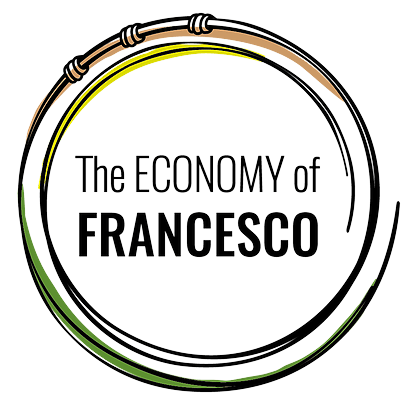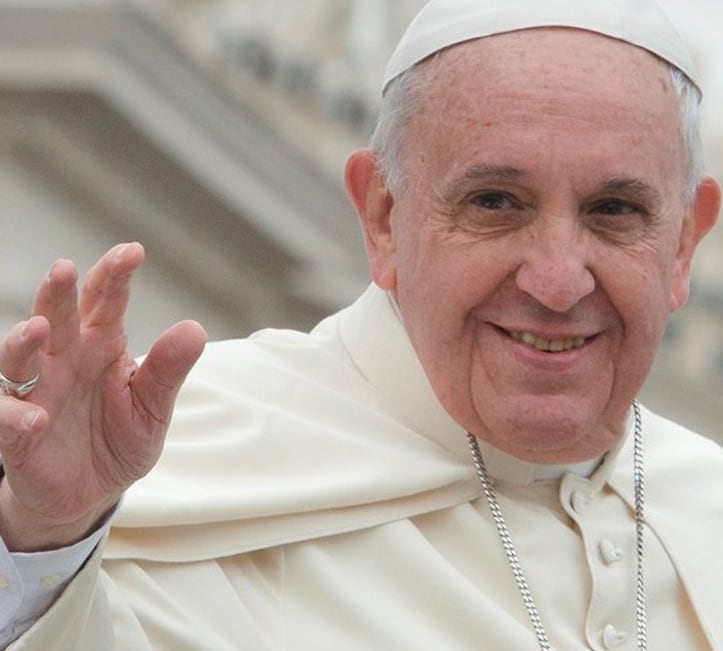Here the interview with Lourdes Hercules that United World Project conducted on the occasion of the upcoming appointment with "The Economy of Francesco"
source: UWP
Mark these dates: 22, 23, 24 September. Remember this place as well, Assisi, because these are the coordinates of the Economy of Francesco: young entrepreneurs, economists, change makers, called to gather since a few years now from Pope Francis, to give back a soul to the economy. Let’s talk about it with Lourdes Hercules, a Guatemalan journalist working on this appointment.
Lourdes Hercules, you are a journalist living in Guatemala and are working on this project since some time. In my opinion, even though it’s spoken about a lot, some people don’t really know what Economy of Francesco is. Can you tell us about it?
LOURDES HERCULES: «The Economy of Francesco is a global community of young entrepreneurs, researchers, economists and especially change makers who are already working on a process of change. We want to give a soul to the economy of the future, taking care of the most vulnerable, of the “common house” and of many aspects of the global economy, that are, as of now important and that we want to change. Therefore, we specifically talk of a process. Just as Pope Francis asked us in 2019, when he sent us a letter of invitation, to initiate this process of change.
To clear out the field of doubt at once: When we talk of Francesco, is it referred to St. Francis of Assisi or Pope Francis, who called you to gather?
LH: «In reality, it is referred to both. For example, this event will take place at Assisi because it is also a way to follow the footsteps of St. Francis who left us a message that continues to remain relevant. With all the buildings, structures that still speak of him and have a lot to tell us on the finance, poverty. His messages talk about care and continue to have something to teach us. And Pope Francis because, on one hand, he was the one who made this invitation to us, and us youth have responded. Then, because he, through his encyclicals, left us a message, a path to follow: we can bring this message especially to the economy. We are talking about the encyclical “Laudato Si”, but also “Fratelli tutti” and thus are both, St. Francis of Assisi and Pope Francis: Economy of Francesco».
And so it makes the message of St. Francis even more relevant…….
LH: «Exactly! Precisely in the event of September there will be an entire day dedicated to exploring the message of St. Francis, to understanding its relevance. A while ago we were talking to the environmental activist Vandana Shiva, and she was also saying: “my research, my work was greatly inspired by St. Francis” – and she, being an Indian said: “I believe that the mantra of the future is really the words of St. Francis: it is only by giving that we receive” ».
How many people are part of this community?
LH: «The community is big, we speak of about thousands of youth already busy in their own work field, in their territory. Instead, when we talk about the event in September, we talk of about a thousand youth that will be present at Assisi. In fact, the Economy of Francesco, as a global community, is a wider community that stretches from the youth working at universities, that have their own companies, to those working in the finance world as well as to those working in the big companies, industries and in the farms. So, we can say that it’s a very very vast community that reaches out especially to the youth, and even to those older who are anyways interested and commit themselves to living the Economy of Francesco».
So is it an open community? Those who share these kind of values can join?
LOURDES: «Yes, there are different ways to join the Economy of Francesco. On one side, through the regular means of communication, to keep up to date with what’s going on. For example, on the inside of the Economy of Francesco, two formation school that have elaborated diverse economic themes, have already been organized. The first was organized to expand the theme of the common goods. Instead, the second, to “Listen to the plants” and create a new economic paradigm. Then, there is a research community, with young researchers. And there is an entrepreneur community that continues to train on how to create new enterprises. There are the “living” events held in the territories that want to explore the themes of the Economy of Francesco, and who try to constantly talk of a new economy. Because, being precisely a process, the economy cannot be changed with a single event, with a single act but has to be constant, for which we talk of a process. Thus, these territorial events are important as they try to engrave in changing the economy, universities, schools, parishes, and the movements. It is like this that the global community of the Economy of Francesco interacts».
I presume that most of the time is dedicated to collecting stories, the good practices that exist on this front. Are there any stories that have particularly touched you and that make you believe that it is possible to change the economy?
LH: «There are different stories, for example that of the Farm of Francesco, a project that wants to give life to a new type of farm in the whole world. Farms that take care of the environment, of the most vulnerable. And so, two were born for this purpose: one in Brazil and the other in Nigeria. There’s a project called Pacar School. The youth of this community of the Economy of Francesco, organized themselves by going to Zambia where they created a project for those who do not have an easy access to education. They provided a technological support to a school of the country and maintained a constancy in this work through an education project for the professors. Thus, they started right from there, from the education. Then, there is another financial education project that wants to reach out especially to the small entrepreneurs. These are the stories that make you think that we are really not talking of a utopia but of real processes that are already in progress».
With everything that is happening, I believe that to go ahead it is very important to build this connection. Is it true, that maybe the Economy of Francesco is a way to encourage us?
LH: «Yes, it’s true. The Economy of Francesco has a great force in the territories with these initiatives born at a local level. But it is also true that the youth feel part of a community that as of now works since two years. For this, the meeting of September will be a moment of celebration in which we will meet the true faces that are usually behind the computers but will also be a moment of gathering. Because in these years many projects were born and thus will be a moment to say: “Here, this is what has been done till now. Here, this is what we were able to discover, these are the issues and these the solutions”. Therefore, it will be a moment to collect ideas because we want to project, to give life to new things for the future. A pact will be made, on one hand, personal as this is a choice, a personal vocation. On the other hand, a collective pact will be made together with Pope Francis to confirm that we are really youth committed to create, to give life to this process of change, to let an economy with a soul be born».
Pope Francis will also be at Assisi; could you tell me how these three days will be carried out?
LH: «Sure, firstly there will the opportunity to follow a few moments online. We start on the 22nd of September, with a moment of celebration. But, this will also be a moment to hear the voices of the youth that have projects to narrate, that have ideas to propose, that have done some research that could inspire others. For which there will be plenaries, workshops. We want to call it this way, a workshop that will allow the participants to create their own agenda, with the possibility to choose their own topics in which they are most interested in and topics they wish to explore, through which workshops. The second day will be a moment to meet St. Francis. Intended as the possibility to roam the city of Assisi, a city that speaks of peace and fraternity, with its own message. This will be a spiritual encounter and a meeting of ideas with St. Francis. Further, there will be a very powerful moment in the 12 villages, as the Economy of Francesco is divided in 12 villages, that will bring together themes that we usually don’t associate: finance and humanity, work and care, etc… These 12 villages will be physical villages in which the youth could work in and explore these themes. The third day is very important as we will pass the whole morning with Pope Francis. We will make a common pact towards the future. In the afternoon, there will yet again be the opportunity to develop these economical themes, through various workshops and plenaries».
For you personally, even as a communicator, what does working on a project that is a challenge mean?
LH: «As a journalist it means learning and communicating in a different way. We cannot talk of a new economy without a new form of communicating economy itself, diverse from the one we are used to. We already communicate that the Economy of Francesco is a challenge, because it means always thinking about the person, it is always giving a face, not just the economy. I am aware that, in reality, talking about economy is something that interests everyone, because it is created with the day-to-day decisions, with the consumption decisions, with the decisions of where I invest my resources, with the decisions of those who know what are my peripheries. Thus, it’s not a message far from us non economist citizens, but is something of really close, close to everyone one of us».
EOF SCHOOL: https://francescoeconomy.org/it/listening-to-plants-for-a-new-economic-paradigm-eof-school-2022/
FARM OF FRANCESCO: https://francescoeconomy.org/it/a-fire-that-kindles-other-fire-the-farm-of-francesco/
PACAR SCHOOL: https://francescoeconomy.org/it/pacar-project-in-zambia/
THE 12 VILLAGES: https://francescoeconomy.org/it/eof-villages/










